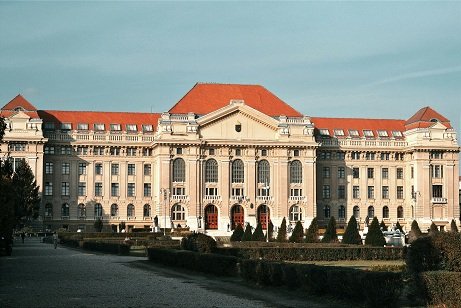Moving from Pakistan to Hungary offers a life-changing opportunity. Hungary is well-known for its rich history, culture, and economic growth. It is famous for its affordable living, friendly locals, and strategic location and has become an attractive destination for students, professionals, and families alike. In this blog, we will discuss all the essential points one should consider before moving to Hungary, including visa, cost of living, culture, language, and many other important things.

1. Preparing for your Journey

Visa Types:
There are four visa types.
Student visa
Work Visa
Business Visa
Family Reunification Visa
Student Visa: Hungary is home to renowned universities, like Eötvös Loránd University and Budapest University of Technology and Economics. You can apply for a Type D student visa for full-time studies, typically requiring proof of acceptance, financial means, and accommodation.
Work Visa: For skilled professionals, Hungary offers a work visa and the EU Blue Card for highly qualified workers. You’ll need a job offer from a Hungarian employer to apply, and some professions are in high demand, particularly in IT, engineering, and teaching.
Business Visa: Hungary also offers visas for investors and entrepreneurs, making it an option for those interested in starting a business. Investing in a Hungarian company or real estate may qualify you for a long-term visa or residence permit.
Family Reunification Visa: For those with family members already residing in Hungary, a family reunification visa can allow you to join them.
Language: While Hungarian is the official language, English is widely spoken in major cities, especially among younger people and in business circles. Learning some basic Hungarian will make daily interactions easier and is highly appreciated by locals.
2. Financial Planning and Cost of Living

Cost of Living: Hungary is one of the more affordable countries in the EU, with Budapest being more costly than smaller cities like Szeged or Debrecen. On average, you’ll find that groceries, dining, and transportation costs are manageable, making Hungary a great place to live on a budget.
Blocked Bank Account for Students: Some students may need to open a blocked bank account to prove they have adequate funds, typically around €5,000 for one year. This account ensures you have the necessary financial means to support yourself.
Healthcare: Hungary has both public and private healthcare systems. Public healthcare is available to residents, but many people prefer private health insurance, which provides faster access to care. Students and employees are usually covered under their university or employer plans.
3. Finding Accommodation
Types of Accommodation:
Student Dormitories: Many Hungarian universities offer dormitories, which are affordable and convenient for international students. Dorms are a great way to meet fellow students and are usually close to campus.
Apartments: Renting an apartment is common for non-students. Websites like Ingatlan.com, Otthontérkép, and local Facebook groups can help you find listings. Rent is typically higher in Budapest, but still affordable compared to Western Europe.
Rental Requirements: Most landlords require a deposit (typically one to two months’ rent), ID, and sometimes proof of employment or study. Contracts are usually written in Hungarian, so having local help with translation can be beneficial.
4. Navigating Hungarian Bureaucracy
Registration and Address Card: Upon arrival, you need to register your address with the local immigration office and obtain an Address Card, which is crucial for legal residence in Hungary. This card is necessary for accessing healthcare, signing a lease, and other services.
Residence Permit: For stays longer than 90 days, you’ll need a residence permit, which varies based on your visa type (e.g., study, work, or family reunification). The process involves providing proof of residence, financial means, and health insurance.
Tax Identification Number: Hungary requires residents to have a tax identification number (TIN) for employment or business purposes. Your employer or university may assist with obtaining this number.
5. Education and Employment Opportunities

Studying in Hungary: Hungary’s universities are well-regarded, especially in fields like medicine, engineering, and business. Many programs are offered in English, and tuition fees are lower than in Western Europe. For students willing to study in Hungarian, public university tuition is often free or highly subsidized.
Job Market and Work Culture: Hungary’s job market is growing, with opportunities in IT, manufacturing, engineering, finance, and tourism. Budapest, in particular, has a thriving expat community with English-speaking job opportunities. Work culture values hierarchy and formality, and employees generally enjoy a good work-life balance.
Networking: Networking is essential, especially in Budapest. LinkedIn and local networking events are excellent ways to connect with professionals and discover job opportunities. Additionally, local job portals like Profession. hu and CVOnline.hu often list jobs open to English speakers.
6. Adapting to Hungarian Culture

Hungarian Lifestyle: Hungarians are known for their hospitality, love for food, and appreciation for culture. Social interactions may seem reserved initially, but people are warm and friendly once you get to know them. Family and tradition are central to Hungarian life.
Social Etiquette: Common greetings include handshakes and respect for personal space is valued. Punctuality is essential in professional settings. When visiting someone’s home, it’s customary to bring a small gift, such as flowers or sweets.
Religious Diversity: Hungary is predominantly Christian, but there is religious tolerance, and larger cities have a mix of communities. Budapest, in particular, has mosques, halal stores, and international grocery shops.
7. Transportation and Getting Around

Public Transport: Hungary’s public transport is reliable and affordable. Budapest has an extensive metro, tram, and bus network, and many smaller cities have bus services. Monthly passes are available and reduce travel costs.
Driving in Hungary: If you have an international driver’s license, you can drive in Hungary. For long-term residents, converting your license to a Hungarian one is advisable. Driving is common in rural areas but not necessary in Budapest due to the strong public transport network.
Traveling within Europe: Hungary’s location makes it easy to travel throughout Europe. Nearby countries like Austria, Slovakia, and Romania are accessible by train or bus, making weekend trips convenient and affordable.
8. Weather and Lifestyle Adjustments
Climate: Hungary has a temperate climate with four distinct seasons. Winters can be cold, with temperatures occasionally dipping below freezing, while summers are warm and sunny. Spring and autumn offer pleasant weather, ideal for exploring the countryside and city parks.
Leisure and Recreation: Hungary has beautiful landscapes, historical towns, and outdoor activities like hiking and cycling. Budapest is known for its thermal baths, cafés, and vibrant nightlife, and the country hosts numerous festivals celebrating Hungarian music, food, and wine.
9. Building a Social Life and Overcoming Challenges
Language Barrier: Hungarian is one of the most challenging languages, but knowing basic phrases can be helpful. English is widely spoken in Budapest, but learning Hungarian is appreciated and may be necessary for administrative tasks.
Homesickness: Moving to a new country can be difficult, especially when far from family. Joining Pakistani or international expat communities can be a great way to stay connected to your roots. Budapest has a growing Pakistani community and offers some halal food options.
Social Integration: Hungarians are known for their reserved but friendly nature. Making friends may take time, but joining local groups, attending events, and being open to learning about Hungarian culture will help you settle in. Meetup.com and Facebook groups can be great resources for social events and gatherings.
10. Long-Term Residency and Citizenship
Permanent Residency: After five years of continuous residence, non-EU citizens can apply for a permanent residence permit, allowing them to stay in Hungary without a visa. This requires proof of financial stability, integration, and local residence.
Citizenship: Hungarian citizenship is possible after eight years of residence. The process involves demonstrating knowledge of the Hungarian language, culture, and history. Hungary allows dual citizenship, so you may retain your Pakistani citizenship if you become a Hungarian citizen.
Final Thoughts
Moving from Pakistan to Hungary is a rewarding adventure, offering a unique mix of cultural heritage, affordable living, and modern opportunities. With high-quality education, friendly locals, and vibrant city life, Hungary is an attractive destination for those looking to experience Europe. By preparing well, understanding the visa and residency processes, and embracing Hungarian culture, you can settle into this welcoming country and make the most of your time in Central Europe.





keep up the good work
NICE WORK SIR.
good information
amazing work